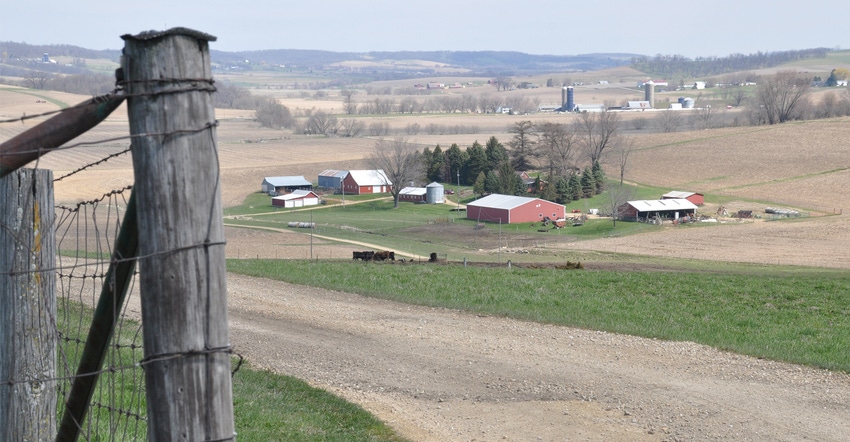November 25, 2019

When I was a teenager growing up on a farm in central Iowa, a young man moved into the community. He was the grandson of a recently deceased neighbor whose children had moved out of the area. The story I heard was that the valuable local farm had been left to this grandson.
With curiosity, my dad and others watched the management decisions the young man made to “improve” what he had inherited. What I recall most vividly were these wise words from my dad after observing for a year or so: “That young man is going to make a small fortune ...” He paused intentionally, then finished: “Out of a big one.”
In this column, we often focus on the technical planning issues, such as avoiding a huge estate tax bill or legally positioning assets with protections from risks like lawsuits and divorce. My colleague John A. Warnick says that is like building a better ship, when maybe we should focus on training a better captain.
If your farm is simply an investment that you want your children to liquidate and spend after you are gone — don’t worry, it will be. But if your vision for your farm includes at least one of your children building on the foundation you have created and living a life much like yours, then your farm faces a much greater risk than taxes, probate or lawsuits.
Studies say only 1 in 3 family businesses succeed in the second generation, and only 1 in 10 continue into a third generation. If you are a second-generation farmer, you are in that 1-in-3 category, meaning your children’s chances of carrying on your parents’ legacy are 1-in-10.
Why family farms cease
Practically speaking, it takes a lot of capital, especially land, to make a living farming. If you have several children, there probably won’t be enough land to go around. They won’t be able to make their living simply off what they inherit.
Those most committed to the farm may make sacrifices — putting their earnings into the purchase of more land, for instance, or renting their inherited land to the farming sibling. The others will probably want to cash out. If most children cash out, that puts the farming sibling in an impossible bind. Family farm, R.I.P.
Do any of your children really share your passion for the farm life? Do they love smelling worked soil, eating supper together as a family, tinkering with a tractor, petting a newborn calf, fussing at the politicians and trusting God for good weather? Do they walk out to the barn or instinctively hop on the side-by-side? Do they see the value and dignity in farming, or just work to get a paycheck?
If one of your heirs shares your passion, your vision has a chance. If none do, then you have two realistic choices. One, get real and give up on your vision, or two, you need to figure out how to light a fire in a successor who you think has potential. This is not a poem you put on the wall, a talk you have with them or a letter you write. This means consciously and continuously communicating your vision.
How? A start would be to have family meetings involving everyone you hope may appreciate your vision. Share your heart — the why behind your goals. Give them the history. Ask each of them how they see their relationship with the farm.
Make sure you are tangibly cultivating your successor. Let him or her start making some of the important decisions. Do they have skin in the game — any direct relationship between their compensation and their choices?
With a well-paid child whose parents hoped would succeed them, when they recommend he put in extra hours during the busy season, he’ll say, “I’m just not motivated by money.” Take the cushy salary away in favor of responsibility and see whether lack of money is a motivator.
Every farmer must know, feel and embrace a proportionality between their commitment and their reward. You dare not shield a successor from that.
Farms are rarely lost to taxes or probate. They aren’t often lost to lawsuits or divorces. Far more farms are lost to inexperienced or undisciplined management of the person thrust into control. Instead of focusing simply on your next income tax return, focus more of your attention on the next generation.
Ferguson is an attorney who owns The Estate Planning Center in Salem, Ill. Learn more at thefarmersestateplanningattorneys.com.
About the Author(s)
You May Also Like






